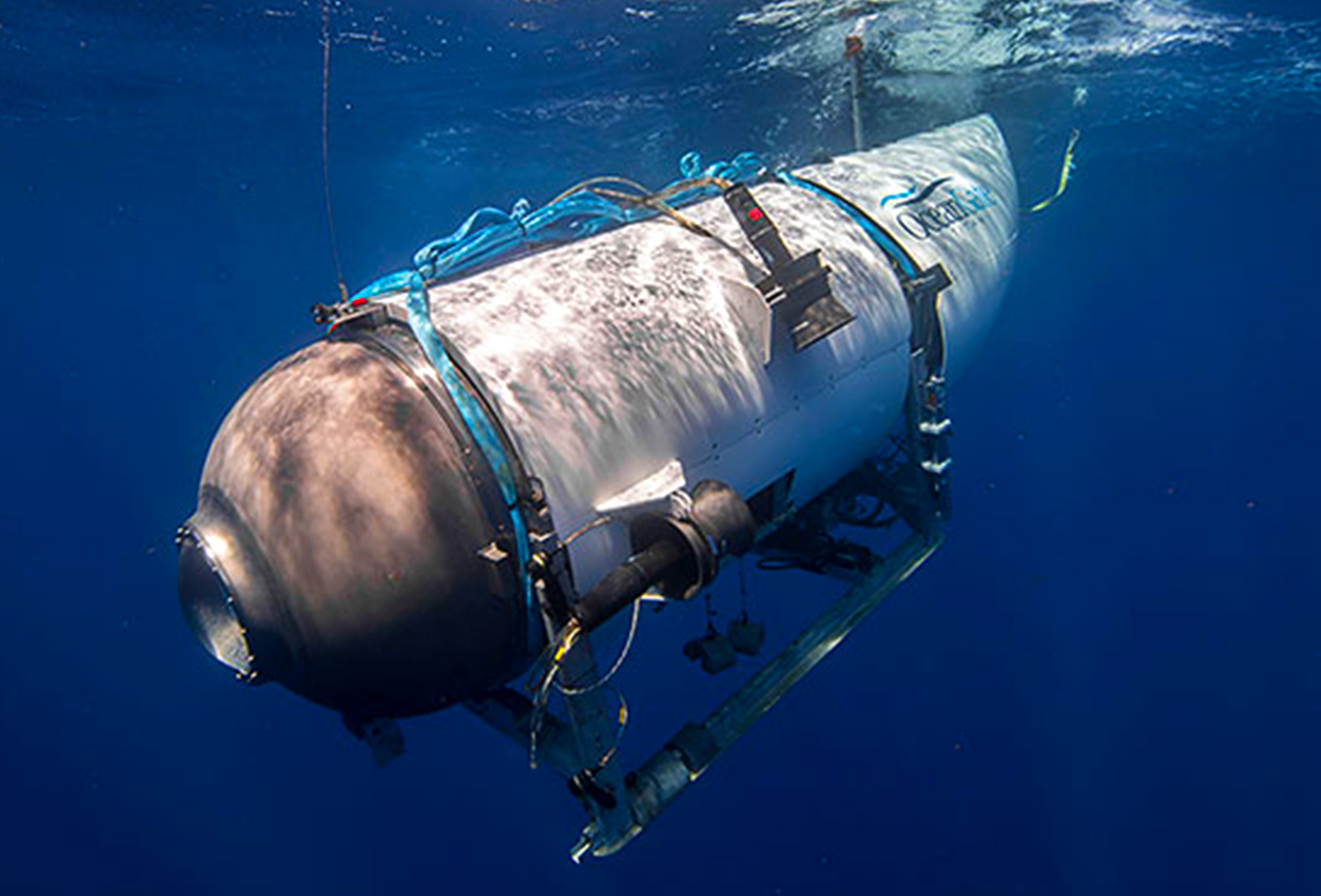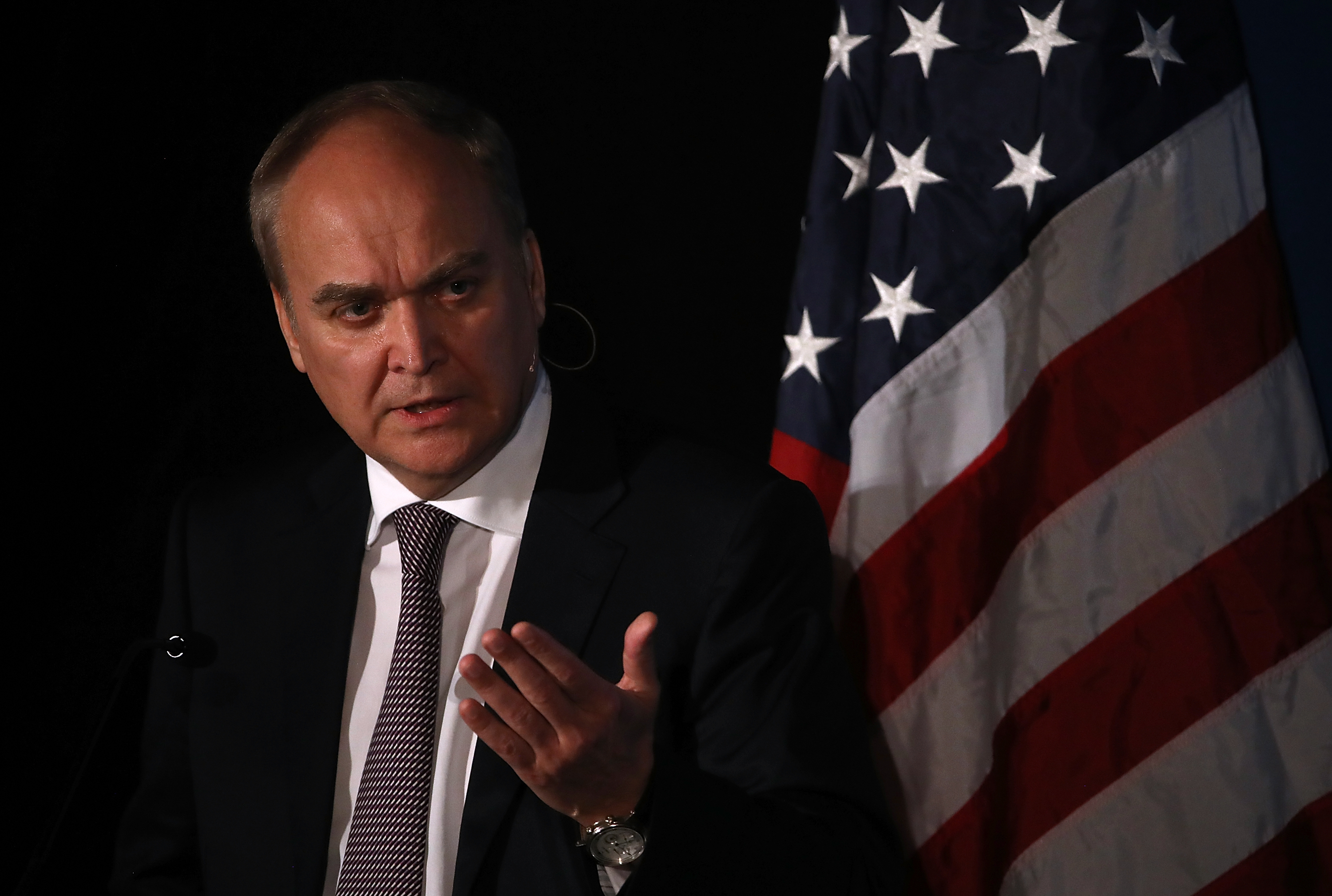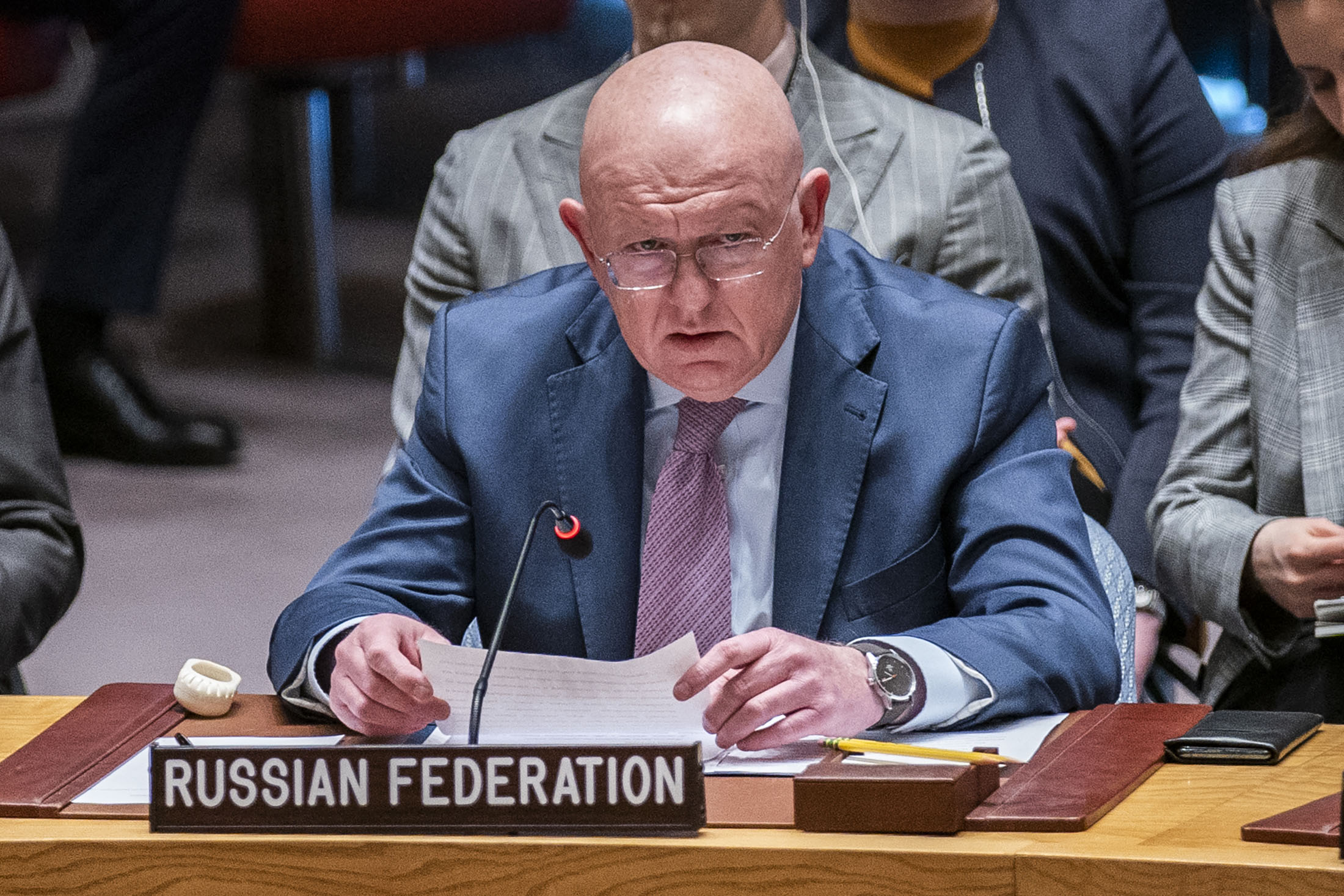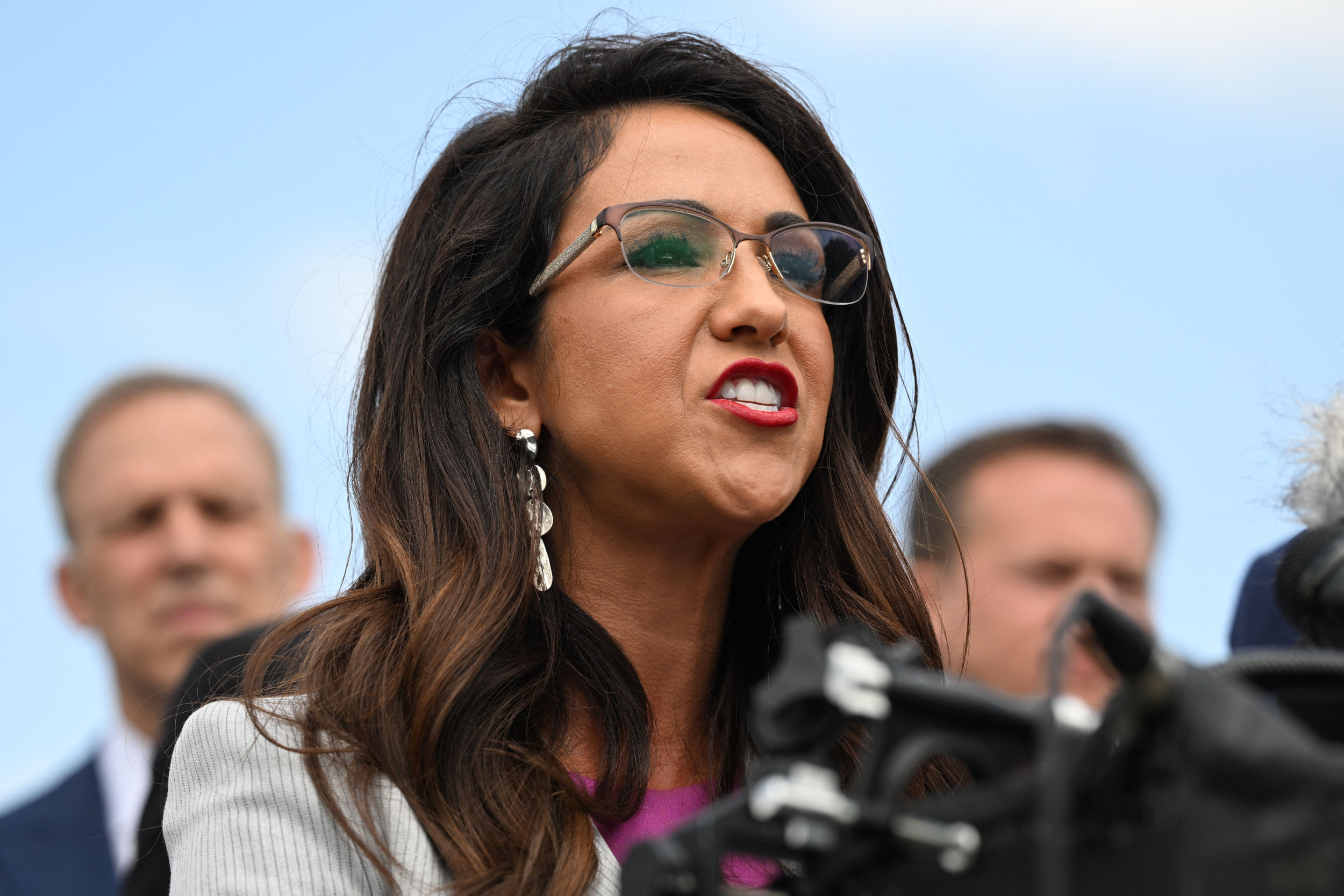In comments shared with Newsweek, Russia's ambassador to the United States has warned that a new resolution proposed by two U.S. senators threatens to push Washington and its NATO military alliance closer to a nuclear exchange with Moscow.
Should such a war of mass destruction erupt, he warns, the U.S. would not be spared by its distance from the ongoing conflict in Ukraine now entering its 17th month.
In the wake of Russia's decision to deploy tactical nuclear weapons to neighboring ally Belarus, which also borders Ukraine, and lingering concerns about the state of the Zaporizhzhia Nuclear Power Plant located in the midst of the war, Republican Senator Lindsey Graham of South Carolina and Democratic Senator Richard Blumenthal of Connecticut proposed a resolution Thursday that would consider any nuclear-related provocation by Russia or Belarus in Ukraine as a direct attack on NATO, triggering its collective defense clause.
The proposed resolution "views the use of any tactical nuclear weapon by the Russian Federation, the Republic of Belarus, or their proxies, or the destruction of a nuclear facility, dispersing radioactive contaminates into NATO territory causing significant harm to human life as an attack on NATO requiring an immediate response, including the implementation of Article V of the North Atlantic Treaty."
Criticizing the move, Russian Ambassador Anatoly Antonov warned that "this is not just another crazy initiative by Russophobe U.S. senators."
"It exemplifies those who really pursue the course towards a direct global conflict between Russia and NATO countries led by the United States," Antonov told Newsweek.

Russia has defended its deployment of tactical nuclear weapons in Belarus by pointing to NATO's longstanding "nuclear sharing" policy through which the U.S. has deployed nuclear weapons among several allied states, including Belgium, Germany, Italy, the Netherlands and Turkey.
"Local politicians cannot let go of Russia's deployment—on legal grounds, I should stress,—of tactical nuclear weapons (TNWs) in Belarus," Antonov said. "We have not violated a single international obligation. We did exactly what the Americans have been doing for decades by fielding nuclear bombs on the territories of their European allies."
Still, the decision has evoked concern from U.S. President Joe Biden, who warned Monday that the threat of Russian President Vladimir Putin "using tactical nuclear weapons" is "real." Days earlier, he called the deployment in Belarus "totally irresponsible."
Secretary of State Antony Blinken said last week the U.S. currently saw "no reason to adjust our own nuclear posture" and did not "see any indications that Russia is preparing to use a nuclear weapon." But he accused Belarusian President Alexander Lukashenko of "making irresponsible, provocative choices to cede control of Belarus's sovereignty against the will of the Belarusian people" and reiterated Biden's commitment "to the defense of NATO—every inch of its territory."
With Graham and Blumenthal now proposing a legislative response, Antonov derided what he saw as "yet another manifestation of blind hatred for our country." He argued that "the authors of the new initiative are eager to drag the United States even more deeply in the conflict in Ukraine."
This, too, in the Russian envoy's view, extended to mounting concerns over the situation at the Russia-controlled Zaporizhzhia Nuclear Power Plant in Ukraine, where International Atomic Energy Agency inspectors have traveled in recent days to ensure the site's continued operations and investigate reports of explosives being placed on the premises.
Both Russian and Ukrainian officials have accused one another of planning to stage an attack on Europe's largest nuclear power plant.
"International public opinion is force fed with a provocative point of view that Russia intends to launch a nuclear strike on the territory of Ukraine, and maybe even to destroy some nuclear facility," Antonov said. "Is this phraseology hiding an intention to prepare the world for a provocation at the Zaporizhzhia NPP such as planting a 'dirty bomb' there and, of course, pinning all the sins on the Russian Federation?"
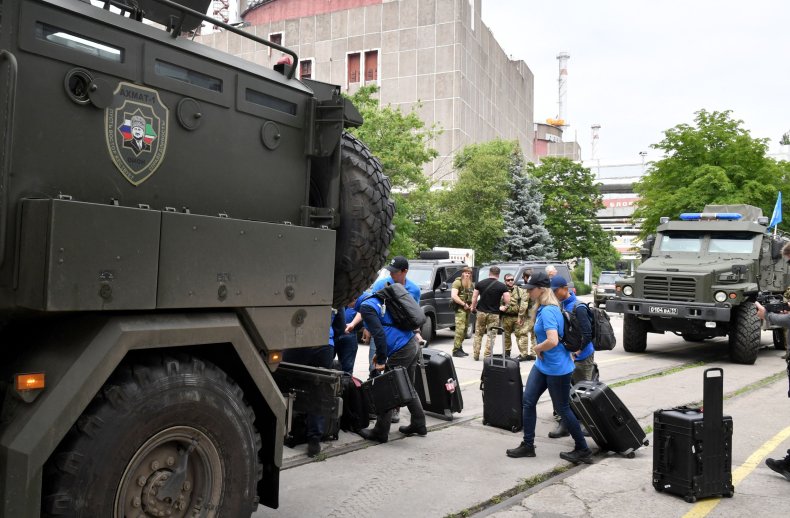
The conflict in Ukraine has sparked an uptick in nuclear-related concerns, especially as Russia suspended its participation in the New Strategic Arms Reduction Treaty, the last surviving bilateral arms control pact between Moscow and Washington. Russia has argued that sanctions have effectively prevented inspectors from carrying on-site inspections in line with the deal, an argument that U.S. officials have rebuffed.
And while Putin has consistently emphasized that he was prepared to use nuclear weapons in the defense of the Russian Federation, Antonov pointed out that there has been no departure from the nuclear policy of the Kremlin last updated in June 2020.
"We have repeatedly stated that there have been no changes in Russian documents regulating the employment of nuclear weapons," Antonov said. "The conditions for their use remain the same. Russia has always been a responsible nuclear power, which, as a permanent member of the UN Security Council, bears a special responsibility for peace and international security."
Both Moscow's nuclear doctrine and that of Washington, most recently released last November, allow for the use of nuclear weapons when confronted with grave non-nuclear threats. But just one month before Russia launched its war in Ukraine, both Russia and the U.S. issued a joint statement alongside fellow nuclear-armed U.N. Security Council permanent members China, France and the United Kingdom affirming that "a nuclear war cannot be won and must never be fought."
Dismissing U.S. suspicion of the Kremlin's intentions nearly a year and a half later, Antonov stressed that "the speculations about Russia's possible use of TNWs are absurd."
"By using such cheap rhetoric, the local elite demonstrates its absolute incompetence in strategic matters," Antonov said. "The provocative and short-sighted remarks of the U.S. lawmakers only serve to escalate tensions and increase the risk of the situation sliding to an even more dangerous point."
He asserted that "it is time to realize that in the event of a direct armed conflict between Russia and NATO countries, the United States will not be able to hide behind the ocean."
